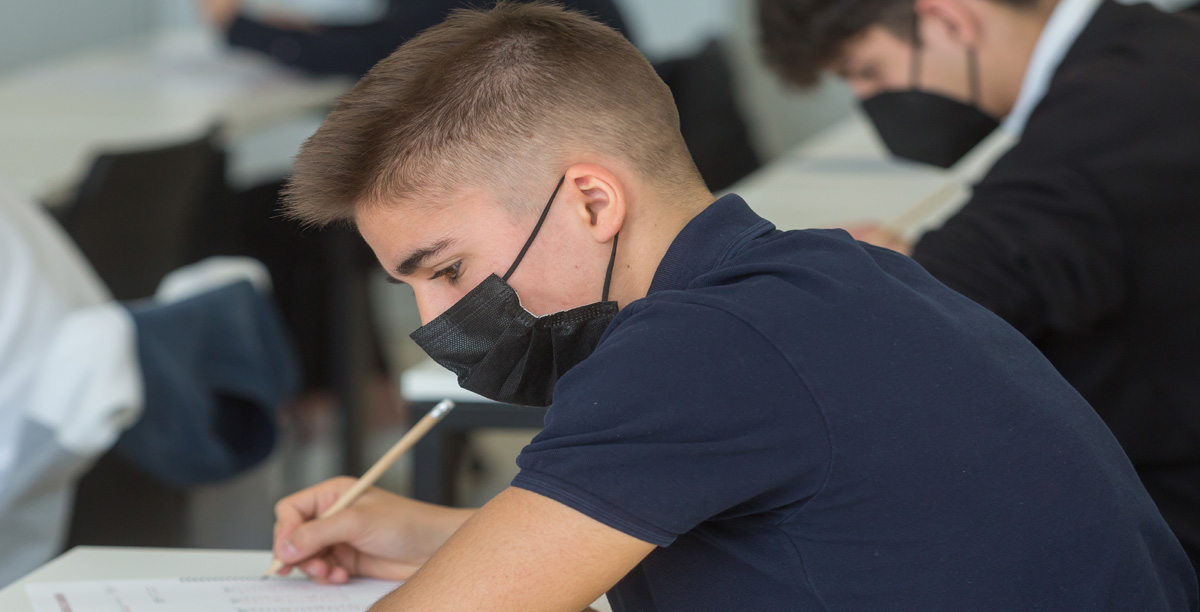How to cope with exams

Exam anxiety consists of a series of negative emotional reactions that some students have to exams. Fear of exams is not an irrational fear, since exam performance determines much of a person's academic future. But as with most anxiety, it is when it occurs at very high levels that it can seriously interfere with a person's life.
This anxiety can be "anticipatory" if the feeling of discomfort occurs when studying or thinking about what will happen in the exam, or "situational" if it occurs during the exam itself.
On most occasions there is a real or perceived agent that triggers the anxiety. This may simply be a previous experience of blocking an exam, or of having been unable to recall known answers.
If you have prepared well for the exam, the anxiety may be due to negative thoughts or worries. You may be thinking about previous exams, about how other students are doing in the exam or about the negative consequences you foresee if you do badly.
It may also be due to a lack of preparation for the exam, which is a good reason to be worried! In these cases, errors in time allocation, poor study habits or a study "binge" the night before can increase anxiety considerably.
The effects of anxiety are physiological, psychological and emotional.
Reactions at the physiological level may include tachycardia, muscle tension, nausea, dry mouth or sweating. At the psychological level, one may experience an inability to act, make decisions, express oneself or handle everyday situations. As a result, you may have difficulty reading and understanding questions, organising your thoughts, or remembering words or concepts. It is also possible to experience a mental block (or "going blank"), which manifests itself in an inability to remember answers even though they are known.
Finally, emotional reactions can lead to feeling apprehensive, restless, angry or helpless.
What can you do to reduce anxiety?
The following strategies can guide you in coping with test anxiety. Their usefulness may increase depending on the commitment to change you make.
Essential points for managing anxiety:
- Try to expose yourself to situations that make you anxious. This step is necessary to deal with anxiety in general, and thus to increase your anxiety management skills day by day. Do not avoid attend to an exam for fear of drawing a blank, the development of skills to cope with anxiety is a gradual process, which will be strengthened in successive exams.
- It attempts to recognise the emotions that accompany the anxiety response in critical situations. The goal is to detect the onset of anxiety as early as possible, and to implement strategies to prevent it from arising, such as abdominal breathing.
This consists of breathing hard and slow, filling the lungs completely from the abdomen, something we don't usually do in normal breathing.
Allocate the necessary study time to do all the things you need to do before the exam (review study material, make outlines, go over the topics...).
- Increase your self-confidence by frequently reviewing the material.
- Set study goals and tackle them one at a time so as not to saturate yourself.
- If you feel nervous, try to relax with one of the following techniques:
- Abdominal breathing as indicated above in the essential guidelines.
- Tense and relax different muscle groups. For example, tense your shoulders for a few seconds and then let them drop. Feel the relaxing sensation this produces and learn to identify states of tension in the muscles and relax them immediately.
- Think positively about yourself. Take time to think about: rational responses to negative thoughts (e.g. instead of saying "I'm going to fail" say "I have the skill for approve, I just need to work harder"), thoughts that help you manage stress (e.g. "A little activation can help me. So I'll do my best") and thoughts that help you stay focused (e.g. "I can answer the question if I work out the answer in small sub-sections").
-
Arrive early enough to sit in a place where you feel comfortable.
-
Avoid meeting people who you think might cast doubt on your preparedness.
-
When you receive the test, read the instructions a couple of times and organise your time efficiently.
-
Don't rush if you see that your colleagues finish first, work calmly at your own pace.
-
Some of the relaxation techniques that you can use during the study phase can also help you during the exam, such as deep breathing or tensing and tensing your muscles. Take a couple of minutes break if you feel you need to practice them.
-
Start with the easier questions, which will reinforce you and make you more confident in tackling the more difficult questions.
-
Ask the teacher about any questions you may have during the exam.
-
Think of positive things that will help you stay focused during the exam, such as "This is just an exam", "I am familiar with the material"....
-
Think that after the exam you will be able to treat yourself.
